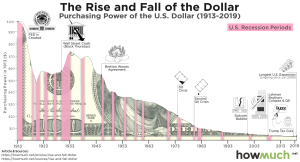Stefanie Stantcheva, a distinguished Harvard economist, recently received the illustrious John Bates Clark Medal, an accolade awarded to influential economists under 40. Recognized for her groundbreaking research in tax policy and public finance, Stantcheva’s work has significantly advanced the understanding of economic innovation and behavior. In her words, the tax system plays a crucial role in shaping the economy, either fostering or hindering innovation based on its design. With deep insights showcased in her acclaimed studies, particularly a pivotal 2022 paper that examines taxation’s impact on innovation, Stantcheva’s contributions have garnered wide acclaim in academic circles. As the Nathaniel Ropes Professor of Political Economy, she continues to inspire colleagues and students alike with her passion for unraveling complex economic issues.
In the realm of economic thought, Stefanie Stantcheva stands out as a formidable figure, having recently earned the prestigious Clark Medal awarded to young economists making significant strides in their field. Her expertise spans tax legislation and the dynamics of public finance, where she investigates how these elements influence economic progress and individual behavior. Stantcheva’s contributions are pivotal in understanding how tax frameworks can either boost or stifle innovation, making her research essential for policymakers. The recognition she has received not only underscores her impact on economics but also highlights a younger generation of scholars who are reshaping our understanding of economic systems. Throughout her academic journey, she has continually advocated for a nuanced approach to economic policies, ensuring they align well with the public good.
Stefanie Stantcheva: A Rising Star in Economics
Stefanie Stantcheva has firmly established herself as one of the most influential young economists of her generation. Awarded the prestigious John Bates Clark Medal for her groundbreaking research, she is recognized for her ability to merge complex economic theories with real-world applications, particularly in tax policy and public finance. The medal, which honors economists under 40 who have made significant contributions, places Stantcheva among other notable figures in the discipline, highlighting the importance of innovation within economic frameworks.
Her work has particularly focused on how tax policy not only affects government revenues but also shapes economic behavior and innovation. Stantcheva believes in the critical role that a well-structured tax system plays in fostering an environment conducive to growth, particularly in the realms of technology and entrepreneurship. As a Harvard economist, she exemplifies the vibrant academic culture that encourages fresh ideas and interdisciplinary approaches to pressing economic challenges.
Impacts of Tax Policy on Economic Innovation
In her research, Stantcheva highlights the dynamic relationship between taxation and innovation. Her 2022 paper, “Taxation and Innovation in the 20th Century,” revealed compelling evidence that changes in tax policy can significantly influence the rate of innovative activities. Businesses and investors tend to adjust their actions in response to tax incentives or disincentives, demonstrating the elasticity of innovation in relation to tax structures. Recognizing this, policymakers must consider how to design tax systems that stimulate rather than stifle economic creativity.
Moreover, Stantcheva’s findings indicate that while higher taxes may reduce the overall quantity of innovations produced, they do not necessarily impair the quality of those inventions. This insight challenges traditional perceptions of taxation’s role in economic vitality, suggesting that it is not merely the amount of innovation that matters, but also its relevance and impact on society. In this light, her work provides valuable guidance for public finance discussions, especially in crafting policies that effectively balance revenue generation with the promotion of economic development.
The Role of Public Finance in Economic Outcomes
Public finance plays a pivotal role in shaping economic outcomes, and Stantcheva’s research sheds light on its crucial connection to tax policy. Through her contributions, she underscores how well-designed tax systems can act as catalysts for sustained economic growth. By promoting innovation, public finance can effectively encourage entrepreneurship and job creation, leading to a more robust economy. Stantcheva’s insights prompt a reevaluation of existing public finance strategies, with a focus on enhancing their efficacy in stimulating economic dynamism.
Furthermore, she advocates for a comprehensive understanding of how various demographic factors influence economic behaviors in response to taxation. Stantcheva’s work is indicative of the need for a nuanced approach to public finance that considers the diverse impacts on different segments of society. As she continues to explore the interplay between public policy and economic decision-making, her insights are vital in crafting equitable financial systems that promote growth and social mobility.
The Legacy of the John Bates Clark Medal
The John Bates Clark Medal stands as a beacon of recognition for outstanding economists under the age of 40, celebrating those whose work has profoundly impacted the field. Named after the American economist known for his contributions to welfare economics, the medal honors past and present thinkers who push the boundaries of economic thought. Winning this award is not just a personal milestone for economists like Stantcheva; it also signals a commitment to advancing knowledge in areas such as tax policy, public finance, and economic innovation.
With her recent accolade, Stantcheva joins the ranks of other notable economists, reflecting the legacy of innovation and leadership within economics. This recognition not only celebrates her individual achievements but also highlights Harvard’s pivotal role in shaping future economic discourse. As Stantcheva continues her work, she embodies the spirit of inquiry and dedication that the John Bates Clark Medal represents, inspiring future generations of economists to challenge conventional wisdom and seek new solutions to economic problems.
Stefanie Stantcheva’s Contributions to Social Economics
In addition to her academic achievements, Stefanie Stantcheva is also the founder of the Social Economics Lab, which aims to bridge the gap between economic theory and human behavior. By exploring topics like emotions and policy, her lab seeks to understand how people’s psychological frameworks influence their economic decisions. This intersectionality between social dynamics and economics represents a significant stride towards creating policies that resonate with the populace, thus enhancing public finance outcomes.
Through her leadership at the Social Economics Lab, Stantcheva is committed to fostering an environment that nurtures innovative thinking regarding economic policies. The lab’s ongoing research into social mobility and trade reflects her dedication to addressing pressing global issues in a comprehensive manner. By integrating insights from behavioral economics, Stantcheva is enhancing our understanding of how economic policies can create a more equitable society, ultimately shaping a better future for all.
Future Directions in Economic Research
As she looks to the future, Stefanie Stantcheva remains enthusiastic about the potential for economic research to influence policy-making effectively. Her focus on the interplay between tax policy and innovation suggests a forward-thinking approach to economic challenges. By studying how tax systems can incentivize novel solutions, Stantcheva aims to provide policymakers with the tools needed to enhance economic activity in an increasingly dynamic landscape.
Moreover, Stantcheva’s ongoing investigations into the psychological aspects of economic decision-making highlight the need for interdisciplinary collaboration in crafting effective policies. By recognizing the human elements that underlie market dynamics, her work sets the stage for a more holistic understanding of economics. This innovative approach could prove vital for future research and development in public finance, ensuring that economic policies are not only efficient but also socially equitable.
Stefanie Stantcheva and Innovation in Taxation
Stefanie Stantcheva’s work emphasizes the urgent need for innovative approaches to taxation. As a Harvard economist awarded the John Bates Clark Medal, she stands at the forefront of discussions regarding tax reform. By analyzing how tax structures can stimulate or hinder economic activities, Stantcheva’s research provides essential insights that can influence the future of economic policy. Her findings advocate for creating tax systems that are not only fair but also promote sustainable growth and innovation.
In a rapidly changing world, Stantcheva challenges policymakers to rethink conventional tax practices. Emphasizing the importance of aligning tax policy with economic innovation, her research suggests that thoughtfully designed taxes can encourage entrepreneurial endeavors. As Stantcheva continues to explore these intersections, her contributions will pave the way for transformative approaches in public finance that respond directly to the changing landscape of the economy.
The Interplay of Emotions and Economic Policy
One of the more intriguing aspects of Stefanie Stantcheva’s recent research involves exploring the interplay between emotions and economic policies. This area of study seeks to understand how people’s feelings can influence their perceptions of and responses to economic initiatives. By integrating psychological insights into public finance, Stantcheva challenges traditional economic models and suggests that policymakers must take into account the emotional climate surrounding economic decisions.
Understanding emotional responses could be crucial for developing effective tax policies and incentives. Stantcheva’s work implies that bridging the gap between objective economic data and subjective human experiences can yield more robust policies that are readily accepted by the public. This innovative perspective has the potential to reshape economic research and encourage future studies focusing on the emotional factors that drive economic behavior.
Stefanie Stantcheva: A Voice for Inclusivity in Economics
As an influential figure in modern economics, Stefanie Stantcheva advocates for inclusivity within the field. Her research addresses critical issues such as social mobility and the impacts of policy on various demographics, ensuring that economic discussions encompass diverse voices and perspectives. By prioritizing inclusivity, Stantcheva not only enhances the relevance of economic research but also ensures that economic policies cater to the needs of all societal segments.
Through her efforts, Stantcheva strives to inspire others in economics to consider broader implications of their work. By integrating social equity into economic frameworks, she promotes an approach that values diverse contributions and experiences. This commitment to inclusivity will likely shape the future landscape of economics, fostering an environment where equitable growth and opportunity are paramount.
Frequently Asked Questions
Who is Stefanie Stantcheva and what is her connection to the John Bates Clark Medal?
Stefanie Stantcheva is a renowned Harvard economist and the Nathaniel Ropes Professor of Political Economy, recognized for her significant contributions to tax policy and economic innovation. She was awarded the 2025 John Bates Clark Medal for her pioneering insights in public finance, making her one of the leading economists under 40.
What are Stefanie Stantcheva’s contributions to tax policy?
Stefanie Stantcheva has made groundbreaking contributions to tax policy, particularly through her research highlighting the relationship between taxation and innovation. Her work demonstrates how changes in tax policy can significantly influence economic behavior and innovation outcomes, underscoring the tax system’s power in shaping economic activity.
How has Stefanie Stantcheva’s research impacted the understanding of economic innovation?
Research by Stefanie Stantcheva, especially the 2022 paper ‘Taxation and Innovation in the 20th Century’, has shown that economic innovation is highly responsive to tax policy changes. Her findings indicate that while higher taxes may reduce the quantity of innovations, they do not necessarily affect the quality of inventions, reshaping our understanding of the interplay between tax systems and innovation.
What is the Social Economics Lab founded by Stefanie Stantcheva?
The Social Economics Lab, founded by Stefanie Stantcheva in 2018, aims to investigate how people’s perceptions and behaviors influence economic policies. The lab focuses on various critical issues including trade, immigration, climate change, and social mobility, highlighting Stefanie’s commitment to understanding economics through a social lens.
Why is the John Bates Clark Medal significant in the field of economics?
The John Bates Clark Medal is a prestigious award given annually by the American Economic Association to an economist under 40 who has made significant contributions to the field. Winning this medal, as Stefanie Stantcheva did in 2025, is a recognition of outstanding achievements in economics, particularly in areas like tax policy and public finance.
What does Stefanie Stantcheva believe about the tax system’s role in the economy?
Stefanie Stantcheva believes that the tax system plays a crucial role in shaping economic outcomes. According to her, a well-designed tax system can foster innovation and economic activity, while poorly designed policies can deter these vital economic processes, thus having profound implications for public finance and overall economic health.
| Key Points | Details |
|---|---|
| Award Recognition | Stefanie Stantcheva was awarded the John Bates Clark Medal by the American Economic Association for her contributions to economics. |
| Research Focus | Her pioneering research addresses tax policy, innovation, and economic behavior. |
| Notable Findings | Her 2022 paper indicated that higher taxes negatively impact innovation quantity, while quality remains unaffected. |
| Lab Founded | Stantcheva founded the Social Economics Lab in 2018, focusing on the intersection of emotions and economic policies. |
Summary
Stefanie Stantcheva has made remarkable strides in the field of economics, recognized for her groundbreaking work on tax policy and innovation. Her recent accolades, including the prestigious John Bates Clark Medal, highlight her significant contributions and ongoing commitment to understanding economic dynamics. As she continues to lead research that intersects emotional perspectives and economic issues through her Social Economics Lab, Stantcheva’s influence on public finance and policy will undoubtedly shape future economic discourse.




